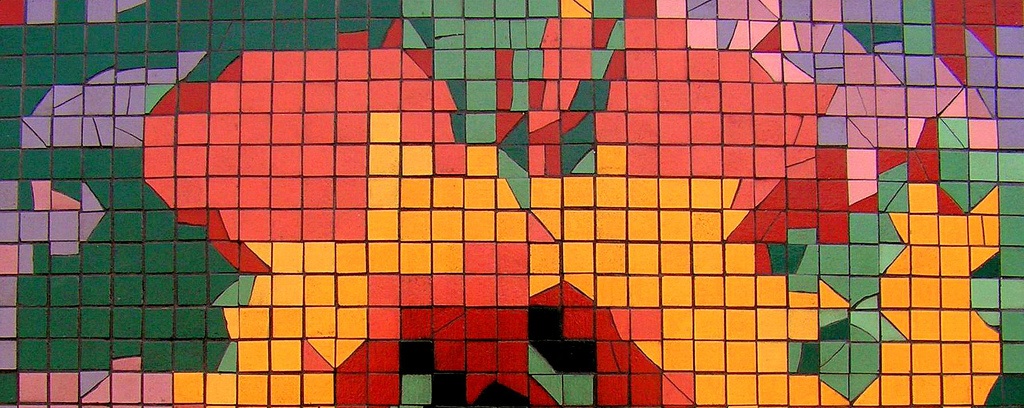SHARE
Leans Thinking and crowdsourcing: A beautiful cocktail!
By combining crowdsourcing with traditional lean thinking techniques, companies can take the operational improvement to the levels unimaginable with traditional in-house approaches.
Doing more with less is now a fact in doing business: That's partially the reason behind executive mandates for improving efficiency across many industries and rebirth of lean thinking (along with Six Sigma) as prominent performance-improvement philosophies.
Nowadays, companies as diverse as smartphone makers to banks and insurance companies and restaurant chains use lean to identify and remove waste in their operations. Even though Toyota might not be a hot company as in early 1980s, still thousands of executives visit its facilities in Japan every year to learn how an excellent lean production works in practice and how they can use lean thinking to help their own companies.
But the quest for efficiency is not the only thing which has gained importance in the last two decades. The notion of innovating through external resources or "Open Innovation" has also become a widely accepted paradigm of thinking thanks to success stories such as P&G and the availability of Internet technologies which make it possible to reach external partners or shape communities to solve a challenge.
What has happened however, is that these two views have usually been championed and implemented by different functions with little overlap: Although a company might benefit from the extra-ordinary outcome which each of these philosophies bring to the table, companies can gain even more and take their performance improvement initiatives to the next level by combining the two.
How it works
In a nutshell, lean thinking is about identifying waste in business processes and try to come up with solutions to remove the waste. This is typically done through formation of functional of sometimes cross-functional teams which observe a process and identify the pain points. The team then tries to embed new improvement ideas in those processes to eliminate ways and achieve higher efficiency.
This process and the generated solutions however, are bounded by the knowledge and ideas of the group which is in charge of improvement. It is very possible in such a scenario for the team to reinvent the wheel or utilize solutions which are sub-optimal compared to what is being used elsewhere in other industries.
![corona-ceramica]() Corona Ceramics does it
Corona Ceramics, headquartered in Bogota in Columbia has been in the business of manufacturing home improvement products for more than 100 years. Like many companies in its industry, when it comes to operational improvement Corona has been “doing it alone” for a long time.
But in the light of recent competitive dynamics and the need for higher efficiency, the company realized that there is a need for a new approach to manufacturing excellence.
Through a crowdsourcing campaign, Corona asked potential solvers to help them come up with faster ways of producing their products. Specifically, Corona wanted a method to manufacture white lightweight ceramic tableware with high chip resistance. These types of products are easily damaged in general use as they are prone to chips, cracks, and dents.
The Columbian company was seeking formulations that would make use of novel fibers or fillers to create attractive products that would be resistant to general wear and tear. And for this open innovation challenge the company was willing to offer $20,000.
The challenge was finally won by Wolfgang Schaerfl from Germany. Both the seeker and the solver are keeping the solution a secret, but Corona is more than happy with the new way it has been pursuing operational improvement.
The point is…
Lean and crowdsourcing are not incompatible. As a matter of fact, if applied smartly and to the right problems, the combination will result in a beautiful cocktail which will delight the customers, the company and the winning solvers!
Photo credit: Lollie-Pop / Foter / CC BY
Corona Ceramics does it
Corona Ceramics, headquartered in Bogota in Columbia has been in the business of manufacturing home improvement products for more than 100 years. Like many companies in its industry, when it comes to operational improvement Corona has been “doing it alone” for a long time.
But in the light of recent competitive dynamics and the need for higher efficiency, the company realized that there is a need for a new approach to manufacturing excellence.
Through a crowdsourcing campaign, Corona asked potential solvers to help them come up with faster ways of producing their products. Specifically, Corona wanted a method to manufacture white lightweight ceramic tableware with high chip resistance. These types of products are easily damaged in general use as they are prone to chips, cracks, and dents.
The Columbian company was seeking formulations that would make use of novel fibers or fillers to create attractive products that would be resistant to general wear and tear. And for this open innovation challenge the company was willing to offer $20,000.
The challenge was finally won by Wolfgang Schaerfl from Germany. Both the seeker and the solver are keeping the solution a secret, but Corona is more than happy with the new way it has been pursuing operational improvement.
The point is…
Lean and crowdsourcing are not incompatible. As a matter of fact, if applied smartly and to the right problems, the combination will result in a beautiful cocktail which will delight the customers, the company and the winning solvers!
Photo credit: Lollie-Pop / Foter / CC BY
That's where the crowdsourcing value pops up: By reviewing the potential pain points and selectively organize open innovation challenges around the most appropriate ones, lean improvement initiatives can go beyond the conventional benefits realized through internal approaches.
